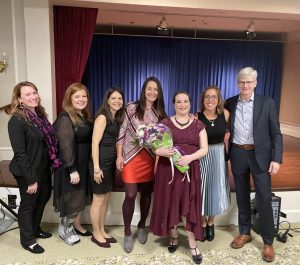 March is Brain Injury Awareness Month, and according to the Brain Injury Alliance, there are currently over 5 million Americans living with brain injuries, a number that increases by about 5,000 injuries per day.
March is Brain Injury Awareness Month, and according to the Brain Injury Alliance, there are currently over 5 million Americans living with brain injuries, a number that increases by about 5,000 injuries per day.
So for us, it’s a perfect time to raise awareness of the impact that brain injuries can have on individuals and families.
An acquired brain injury (ABI) or traumatic brain injury (TBI) can drastically change the lives of not only the individual with the injury, but also their loved ones. And when the person with the injury is a minor child, the whole family faces unexpected challenges and uncertainty.
 Connecticut Estate Planning Attorneys Blog
Connecticut Estate Planning Attorneys Blog











